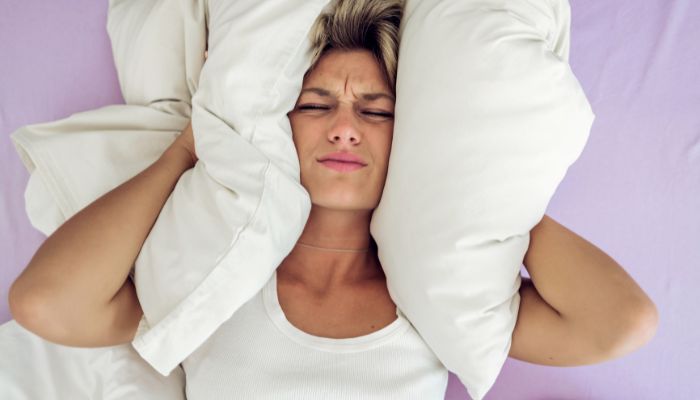Worry about your concern!!
Online consultation · Starts at just ₹199
Consult with top specialist doctors in their fields


Insomnia: Causes, Symptoms, and Effective Treatments for Better Sleep
Insomnia Causes and Treatment is essential to understand for those struggling with sleep issues. Insomnia is a common sleep disorder that makes it difficult to fall asleep, stay asleep, or get restful sleep. This condition can leave you feeling tired, irritable, and unable to function well during the day. Understanding Insomnia Causes and Treatment can help you get the restful sleep you need.
Possible Causes
Why do people experience insomnia? Insomnia Causes and Treatment vary from person to person, depending on several factors. Some common causes of insomnia include:
- Stress: Work, school, health, or family issues can keep your mind active at night, making it difficult to sleep. Chronic stress can also disrupt the balance of hormones and neurotransmitters that regulate sleep.
- Anxiety and Depression: Mental health disorders can disrupt sleep patterns and make it hard to fall asleep or stay asleep. People with anxiety often experience racing thoughts that keep them awake, while those with depression may have early morning awakenings or fragmented sleep.
- Poor Sleep Habits: Irregular sleep schedules, naps during the day, stimulating activities before bedtime, and an uncomfortable sleep environment can all contribute to insomnia. Habits such as using electronic devices before bed can interfere with the body's natural sleep-wake cycle.
- Medications: Certain prescription and over-the-counter medications can interfere with sleep. For example, medications for asthma, allergies, depression, and high blood pressure may have side effects that disrupt sleep.
- Medical Conditions: Conditions such as chronic pain, asthma, acid reflux, and hyperthyroidism can cause insomnia. Sleep disorders like sleep apnea and restless legs syndrome also contribute to poor sleep quality.
- Caffeine, Nicotine, and Alcohol: These substances can disrupt sleep or prevent you from falling asleep. Caffeine and nicotine are stimulants that can keep you awake, while alcohol can interfere with the sleep cycle and cause fragmented sleep.
How to Treat Insomnia
Insomnia Causes and Treatment are closely linked. Addressing the causes of insomnia is key to finding the right treatment. Here are some effective strategies:
Lifestyle and Home Remedies
- Stick to a Sleep Schedule: Go to bed and wake up at the same time every day, even on weekends. Consistency helps regulate your body's internal clock and improves sleep quality over time
- Create a Relaxing Bedtime Routine: Engage in calming activities like reading, taking a warm bath, or listening to soothing music before bed. Establishing a routine signals to your body that it's time to wind down.
- Make Your Bedroom Sleep-Friendly: Keep your room cool, dark, and quiet. Invest in a comfortable mattress and pillows. Consider using blackout curtains and white noise machines to create an ideal sleep environment.
- Limit Screen Time Before Bed: Reduce exposure to screens an hour before bedtime, as the blue light can interfere with melatonin production. Instead, engage in activities that help you relax and prepare for sleep.
- Avoid Stimulants and Heavy Meals: Refrain from consuming caffeine, nicotine, and heavy meals close to bedtime. Opt for light snacks if you’re hungry before bed.
Natural Remedies
- Chamomile Tea: Drinking chamomile tea before bed can promote relaxation and improve sleep quality. Chamomile contains compounds that have a mild sedative effect.
- Lavender: Using lavender oil in a diffuser or applying it to your pillow can help reduce anxiety and improve sleep. The soothing scent of lavender promotes relaxation and eases tension.
- Valerian Root: Taking valerian root supplements may help you fall asleep faster and enjoy deeper sleep. Valerian root has been used for centuries as a natural remedy for insomnia.
- Magnesium: Magnesium supplements can help relax muscles and calm the nervous system. Foods rich in magnesium, such as leafy greens, nuts, and seeds, can also support better sleep.
When to Seek Medical Advice
If lifestyle changes and natural remedies do not improve your insomnia, consider seeking medical advice. A healthcare provider may recommend cognitive-behavioral therapy for insomnia (CBT-I) or prescribe medications to help you sleep.
Seek medical attention if your insomnia is accompanied by:
- Severe Anxiety or Depression: If your mental health is significantly affecting your sleep, a healthcare provider can help address the underlying issues.
- Chronic Pain or Discomfort: Persistent pain can interfere with sleep, and managing the pain can improve sleep quality
- Frequent Nightmares or Night Terrors: These sleep disturbances can disrupt your rest and may require professional intervention.
- Sleep Apnea Symptoms: Sleep apnea is a serious condition that affects breathing during sleep and requires medical treatment.
- Any other concerning symptoms: If you experience unusual or severe symptoms related to your sleep, it's important to consult a healthcare provider
Final Thoughts
Insomnia Causes and Treatment are crucial to understand for anyone struggling with sleep issues. Insomnia can be a challenging condition, but with the right strategies and treatments, you can improve your sleep quality and overall well-being. Address the underlying causes and make necessary lifestyle changes to promote healthy sleep habits. Don't hesitate to seek professional help if needed. Here's to a restful and rejuvenating sleep!


